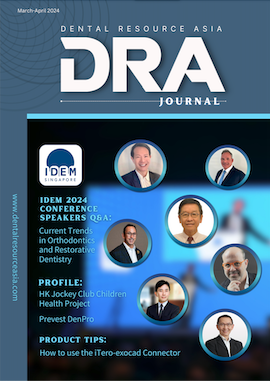ISRAEL: New research from the Institute of Biomedical and Oral Research at the Hebrew University-Hadassah Faculty of Dental Medicine sheds light on a significant connection between oral bacteria and the development of pancreatic cancer.
This study, published in the journal Gut, highlights a previously recognized but poorly understood link between oral health and pancreatic cancer, one of the deadliest forms of the disease.
Groundbreaking Findings
Led by Prof. Gabriel Nussbaum and his team, the study delves into the intricate relationship between oral microbiota, notably Porphyromonas gingivalis, and the acceleration of pancreatic cancer development. Their research, titled “Oral bacteria accelerate pancreatic cancer development in mice,” presents compelling evidence of the role oral bacteria play in driving the progression of pancreatic cancer.
 Click to Visit website of India's Leading Manufacturer of World Class Dental Materials, Exported to 90+ Countries.
Click to Visit website of India's Leading Manufacturer of World Class Dental Materials, Exported to 90+ Countries.
The research involved comprehensive investigations using mouse models to understand the potential impact of Porphyromonas gingivalis on pancreatic cancer progression. By introducing this bacterium to genetically engineered mice predisposed to pancreatic ductal adenocarcinoma (PDAC), the team observed accelerated cancer development.
Key Findings
Key findings from the study indicate that viable Porphyromonas gingivalis was found in the pancreas of healthy mice after application to the gums, suggesting translocation from the oral cavity. Prolonged exposure to the bacterium induced changes in the pancreas, affecting its microbial balance and hastening the progression from early pancreatic abnormalities to pancreatic cancer.
Prof. Nussbaum emphasized the significance of considering oral health in understanding and addressing pancreatic cancer. He stated, “By exploring the role of bacteria like P. gingivalis, we’re shedding light on potential risk factors and uncovering new avenues for intervention and treatment.”
Future Implications
The study’s findings suggest a potential link between gum disease and the risk of pancreatic cancer, emphasizing the direct impact of bacteria on this association. The research opens avenues for future investigations, offering potential strategies for preventing and treating pancreatic cancer by targeting oral bacteria.
This groundbreaking study underscores the importance of oral health in overall well-being and highlights the need for further research to elucidate the mechanisms underlying the link between oral bacteria and pancreatic cancer development.
The information and viewpoints presented in the above news piece or article do not necessarily reflect the official stance or policy of Dental Resource Asia or the DRA Journal. While we strive to ensure the accuracy of our content, Dental Resource Asia (DRA) or DRA Journal cannot guarantee the constant correctness, comprehensiveness, or timeliness of all the information contained within this website or journal.
Please be aware that all product details, product specifications, and data on this website or journal may be modified without prior notice in order to enhance reliability, functionality, design, or for other reasons.
The content contributed by our bloggers or authors represents their personal opinions and is not intended to defame or discredit any religion, ethnic group, club, organisation, company, individual, or any entity or individual.

